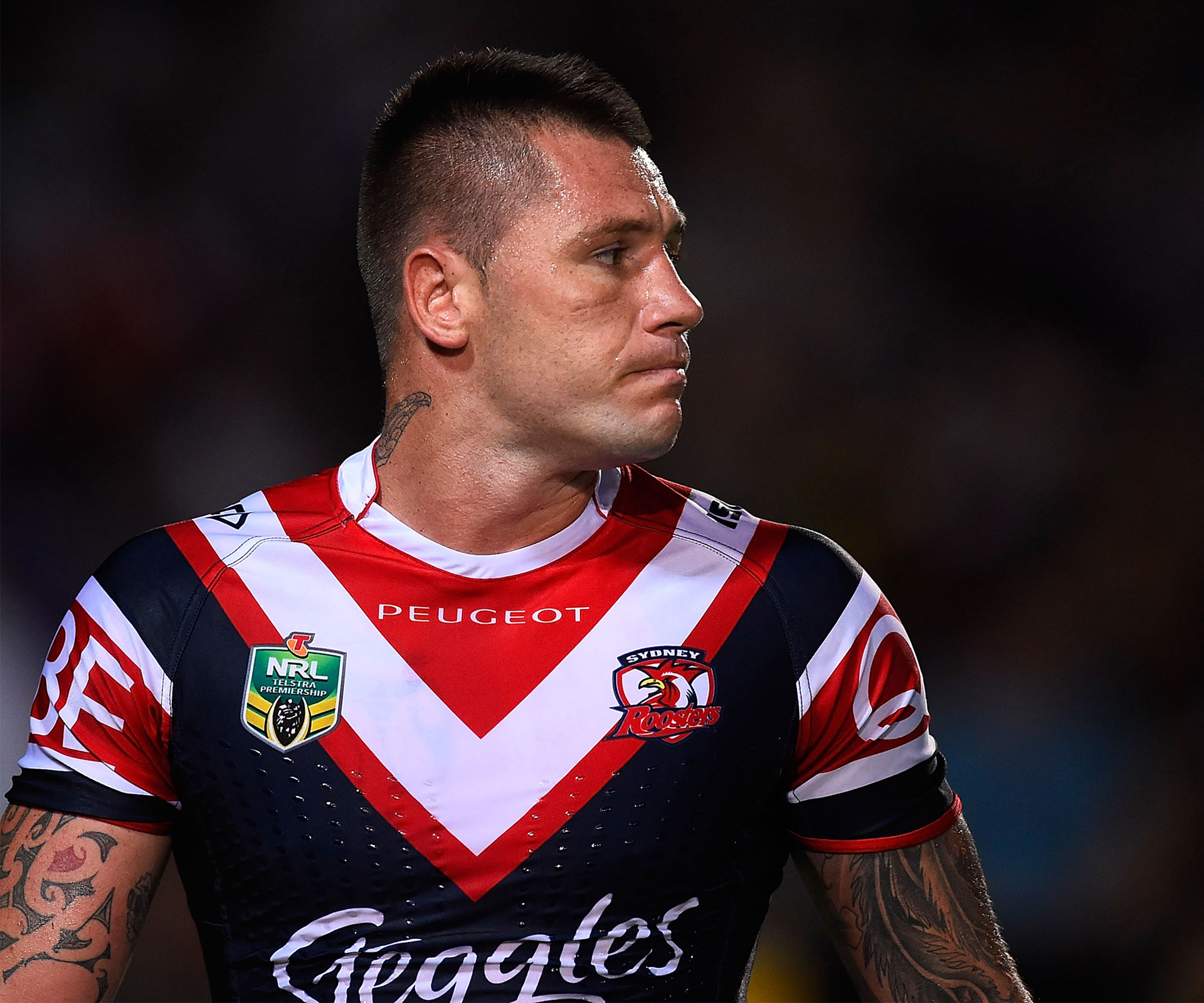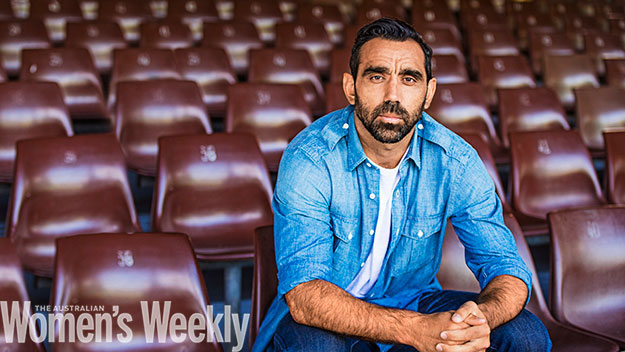Rugby league star Shaun Kenny-Dowall’s legal team is set for a drawn out legal battle after the player pleaded not guilty to 11 domestic violence charges in a Sydney court today.
In the month since the charges were laid, Kenny-Dowall has voluntarily stood down from the Roosters and checked himself into a clinic to be treated for depression. He returns to the field this weekend.
In controversial – and questionable – circumstances, the NRL refused to stand Kenny-Dowall down and claimed the court process needed to run its course before any decision was made on the player’s future.
By all indications, that process will allow Kenny-Dowall to play in finals, even a grand final.
The charges include assault occasioning bodily harm, common assault and stalking.
They follow an application for an Apprehended Violence Order by his former partner, Jessica Peris, the daughter of Northern Territory senator and Olympian, Nova Peris.
While Peris will have to wait for her day in court, Kenny-Dowall’s father, club and supporters have run a whisper campaign for four weeks since the charges first came to light.
They say, variously, that Kenny-Dowall is innocent of all charges, that there are two sides to every story and that we should question the alleged victim instead of the accused.
Within hours of the charges being made public, Kenny-Dowall admitted himself to a clinic where he was reportedly treated for ‘depression’.
While mental health issues are obviously paramount, the question must be asked about how an elite player with no history of depression is suddenly diagnosed and sent to a clinic for treatment.
The biggest issue to arise from today’s not guilty plea is whether the NRL should introduce a rule that a player is automatically stood down from all matches if he is faced with any charge relating to domestic violence.
Instead of fluffing around the edges of what has become a chronic and constant problem within the ranks of rugby league, NRL boss Dave Smith must commit to a policy which clearly states that even a charge is enough for the league to act.
While the NRL trumpets its relationship with the White Ribbon organisation, it has been unwilling to back that support up with action on domestic abuse. As a result, we have seen several players allowed to keep playing (one even after a guilty plea) and others return to the field after being found guilty of domestic abuse.
Just last year South Sydney won the grand final with a player who had pleaded guilty to domestic violence charges earlier in the season.
Kirisom Auva was allowed to play even though he was found guilty of throwing his ex- girlfriend against a garage wall in a case the judge described as devastating for the victim.
The NRL claimed the player had been rehabilitated with counselling.
NRL boss, Dave Smith, repeatedly offers up the “we must let the process run its course in court” line yet he ignores the fact that just by being charged, these players are bringing their game into disrepute.
Guilty or not, the player starts to comprehend the seriousness of a charge.
The player understands very clearly when he signs up that this is one area where the NRL is not going to negotiate.
By enforcing the rule, the NRL makes a much bigger statement than it does by holding hands with White Ribbon.
As it is, we now have a young woman unable to defend herself until a court case and a player with the backup of a football club and administration willing to allow him to make his own decisions on his playing future.


